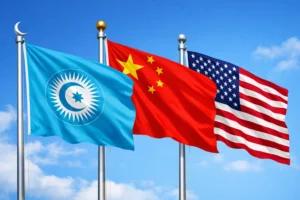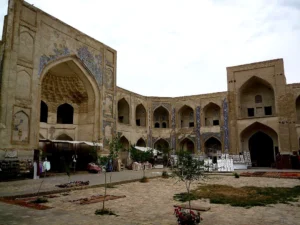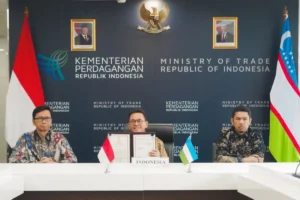A New Era in Expanded Strategic Partnership Between Uzbekistan and Hungary

In a landmark moment for Central Europe and Central Asia, Uzbekistan and Hungary have officially ushered in a new phase of bilateral relations through the establishment of an Expanded Strategic Partnership. This milestone was formalized during President Shavkat Mirziyoyev’s official visit to Budapest from May 19 to 21, 2025, where he met with Hungarian Prime Minister Viktor Orbán for high-level talks that symbolized mutual ambition, shared vision, and multidimensional cooperation. At the Carmelite Palace, both leaders signed a Joint Declaration on the Establishment of an Enhanced Strategic Partnership, cementing their commitment to deepening political, economic, cultural, and technological ties. This declaration reflects the alignment of Uzbekistan’s “New Uzbekistan” reform agenda and Hungary’s “Eastern Opening” foreign policy.
Alongside this declaration, a range of significant intergovernmental agreements were signed, including treaties on extradition, climate change cooperation, peaceful nuclear energy, innovation, disaster management, and science and technology. This comprehensive framework sets the foundation for broad and sustainable collaboration.
Expanding Economic Horizons
One of the most tangible outcomes of the visit is the rapid expansion of economic cooperation. Currently, the joint investment portfolio between the two countries exceeds $500 million, but this is only the beginning. Projects worth more than €1.5 billion were developed in anticipation of the visit, marking an unprecedented scale of collaboration.
Particularly significant was the announcement of the entry of Hungarian banking giant OTP Bank into the Uzbek market, an act that not only signifies trust but also sends a powerful signal to the broader European business community about Uzbekistan’s investment potential. Plans are underway to form a joint auto-lending venture and launch programs to support small and medium-sized enterprises. Business leaders from major Hungarian companies, including OTP Bank, BDPST Group, Wizz Air, Indotek, and 4iG, engaged in productive meetings with Uzbek counterparts. New initiatives were launched in key sectors such as transport infrastructure modernization, highway and logistics center construction, textile and pharmaceutical production, digital innovation, and aquaculture.
In a significant move to attract European manufacturers, Uzbekistan and Hungary agreed to establish a special industrial zone managed by the Hungarian operator Inpark. This zone is designed to become a hub for EU companies seeking to benefit from Uzbekistan’s advantageous geographic and economic conditions. A joint export support platform will be launched, supported by accredited laboratories aligned with EU standards and a product pre-certification program, which will enhance trade facilitation and improve access to European markets for Uzbek goods, especially under the EU’s GSP+ scheme.
Both sides agreed to adopt a dedicated Investment Partnership Program at the upcoming Intergovernmental Commission session scheduled in Budapest in July 2025. Additionally, they proposed the revival of the Uzbek-Hungarian Business Council, with its next meeting expected to bring together a broad array of stakeholders from both countries.
Boosting Sociocultural Ties
Beyond economics, the visit highlighted the deepening of cultural and educational bonds. Uzbekistan and Hungary agreed to propose declaring 2026 as the “Year of Uzbek and Hungarian Culture,” which will include collaborative events such as the staging of the Uzbek ballet “Lazgi” at the Hungarian State Opera and an exhibition of Uzbek cultural heritage at the Budapest Ethnographic Museum.
A bust of Alisher Navoi, the iconic Uzbek poet, was recently unveiled in Lakitelek, symbolizing mutual cultural respect. Similarly, Uzbek Cinema Days, held in Budapest in January 2025, underscored growing people-to-people exchanges. In the educational sphere, Hungary’s “Stipendium Hungaricum” scholarship program remains a pillar of bilateral cooperation, with Hungary offering up to 170 scholarships annually to Uzbek students. Discussions are also underway to establish branches of Hungarian universities in Uzbekistan and to implement dual-degree programs. The upcoming Third Uzbek-Hungarian Rectors’ Forum in Tashkent will serve as a vital platform for further academic collaboration.
On the security front, the leaders exchanged views on global and regional issues, emphasizing continued cooperation in combating terrorism, extremism, illicit drug trafficking, and human trafficking. For the first time, Uzbekistan and Hungary held bilateral security consultations in Budapest, accompanied by the signing of a roadmap for law enforcement cooperation. Both sides reaffirmed their mutual commitment to working closely within multilateral platforms such as the United Nations, the Organization of Turkic States, and the European Union–Central Asia framework. Hungary has increasingly acted as a strategic EU advocate for deeper engagement with Central Asia, while Uzbekistan continues to push for greater regional connectivity and diversified international partnerships.
What sets the Uzbekistan–Hungary relationship apart is its robust institutional framework. Embassies are actively operating in Tashkent and Budapest. The Intergovernmental Commission on Economic Cooperation has become a functional engine for advancing bilateral projects. Foreign minister-level consultations and regular business forums ensure that agreements translate into measurable outcomes. The Uzbek-Hungarian partnership is not limited to present achievements; it is defined by its forward-looking orientation. The leaders’ commitment to launching joint innovation projects in artificial intelligence, green energy, biotechnology, and logistics reflects a shared ambition to integrate their economies into global value chains and future-proof their cooperation.
They are also taking steps to boost regional connectivity through the China–Uzbekistan–Hungary freight corridor, which would serve as a transcontinental trade link connecting East Asia with Europe, which aligns with both countries’ strategic goals.
President Shavkat Mirziyoyev’s official visit to Hungary marked a pivotal turning point in Uzbek-Hungarian relations. The comprehensive nature of agreements signed and the breadth of economic and cultural engagement illustrate elevating the strategic partnership. With a clear roadmap, institutional support, and mutual ambition, Uzbekistan and Hungary are poised to become enduring allies, united by a common commitment to prosperity, security, and global cooperation. This friendship stands as a testament to how bilateral relations, grounded in trust and vision, can transform into a powerful force for regional stability and mutual advancement.


